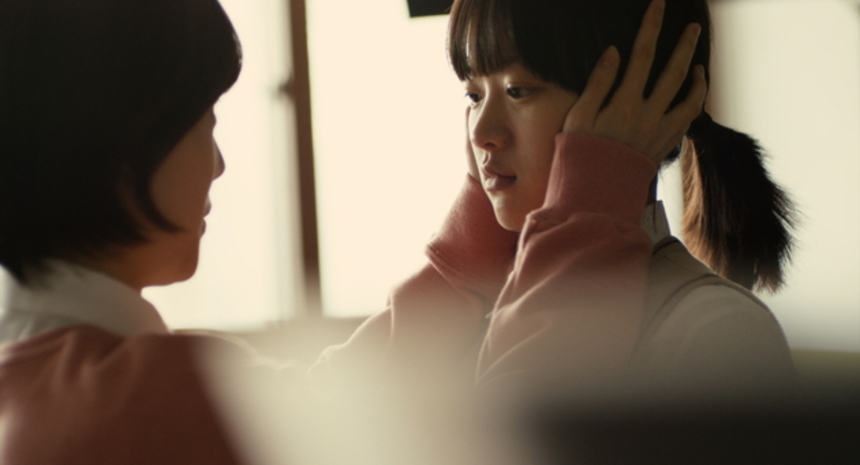Busan 2013 Review: The Devastating HAN GONG-JU Is A Hidden Gem

What is it that drives us to the cinema, time and again? What are we looking for when we enter a theater and the lights begin to fade? In answering that question you will often come across the words entertainment and escapism, two similar terms that nevertheless encompass slightly different purviews. However, at its best, cinema goes beyond mere distraction and has the ability to move us deeply. Like a decades-old junkie chasing his first high, I willingly trawl through a throng of films to experience anew the catharsis that cinema has the ability to provoke. A few consensus picks emerge from time to time but there's nothing quite like being blindsided by something you weren't expecting.
This year's Busan Film Festival was terribly busy for me as and though I was fortunate to see a number of the new Korean films before the fest, it wasn't until day six of the actual event that I finally sat down to a film in a theater. Having seen some and gauged the consensus on a few others, I opted to watch something off my radar and thereby come upon Han Gong-ju. I went in without knowing a thing about it and was ill-prepared for the devastating experience that it turned out to be.
Han Gong-ju is the name of a teenage girl who has been forced to transfer schools. With her parents unable to care for her, she ends up staying with a stranger - the mother of one of her teachers. She mainly keeps to herself as she tries to get on with her new life, while spending some of her time learning to swim. Gong-ju's host, a bitter middle-aged woman who runs a small supermarket, is initially cold to her silent charge but slowly mollifies. Eunhee, a bubbly girl at the new school, takes an interest in Gong-ju but is rebuffed at every turn. When Eunhee and her friends hear Gong-ju play a song in the music room alone they are moved by her voice's beauty and melancholy and beg her to join their a cappella group. A terrible event, the reason for her transfer, haunts Gong-ju still and the truth, which involves two of her former friends, is eventually revealed to the new people in her life.
The first half of the film concentrates far more on Gong-ju's new surroundings rather than what brought her to this new stage in her life. Her lonely keeper, who is engaged in a scandalous affair with a married man, and her would-be friend Eunhee, who seems to crave acceptance, are at this point more clearly drawn than the principal protagonist, who remains a cipher, though never less than an engaging one. Around the halfway point portions of her previous experiences begin to be teased out and though it takes a while for the big revelation to come out, it's clearly going to be a heavy load.
It's hard to believe that this is director Lee Su-jin's debut, given how confident and clever the film's staging is. Han Gong-ju tackles enormous subjects and though it features some incendiary scenes in the back half, its approach is always measured and tactful. In fact, with its at times soft lighting and lilting Korean singer-songwriter music, it could almost be labeled whimsical. Given what eventually transpires, it's a contrast that shouldn't really work but Lee's seamless editing ticks and clever visual cues keep the film in grounded in reality, priming us for what will be a devastating experience.
In the interest of not diminishing its impact, I feel that revealing too much about the film's themes would do the film a great injustice. Bearing that in mind, it is safe to say that it deals with a serious problem in Korean society that has recently been getting more and more exposure through local media and particularly cinema. However, Han Gong-ju goes one step further than most and is more devastating than anything that has come before it. I would also contend that the film doesn't veer into exploitation though many may not share my view on this.
As the lead, Chun Woo-hee has the difficult task of playing a sweet high school girl while hinting at a deep swell of pain. Both expressive and reticent, she is a beguiling and mysterious lead. Also impressive is Lee Young-lan as Gong-ju's caretaker. Strong on the exterior but harboring her own sadness, loneliness and shame, Lee's multi-faceted performance draws us close to the initially cold character. As Eun-hee, Jung In-sun is bubbly and immensely charming, acting in many ways as a foil to Gong-ju's defensiveness.
Though beautiful and often sweet, Lee's film was a deeply unsettling experience that frequently had me in tears. When the secret is revealed, bit by bit, the impact is immense but even more troubling is how people in the film react to her predicament. For someone in need of the most tender kind of understanding and affection, she is plagued by shame, to the point where people distance themselves from her or aggressively label her a liar to shield themselves from shame.
Lee's surprising and overwhelming debut was for me the biggest surprise at Busan this year and I hope that many will have the opportunity to see it. In any case, a great new talent has been found in Lee Su-jin and I can only imagine what he might have in store for us next.
P.S. Word to the wise, the name Gong-ju means 'princess' in Korean while the surname Han could mean a number of things but most likely stands for 'one.' This didn't immediately dawn on me, but when it did after the fact, the flood of emotion elicited by the film came roaring back.
Han Gong-ju
Director(s)
- Su-jin Lee
Writer(s)
- Su-jin Lee
Cast
- Woo-hee Chun
- In-seon Jeong
- So-Young Kim
- Yeong-ran Lee







